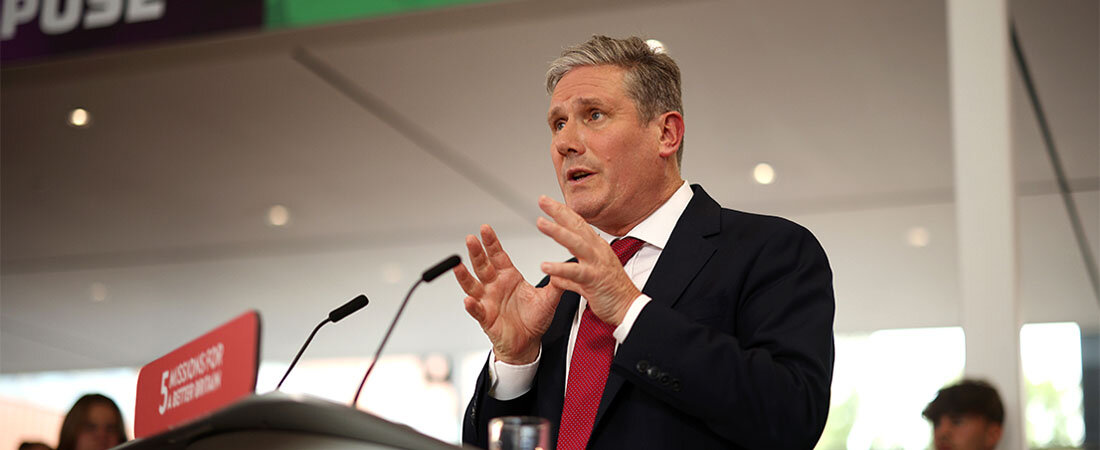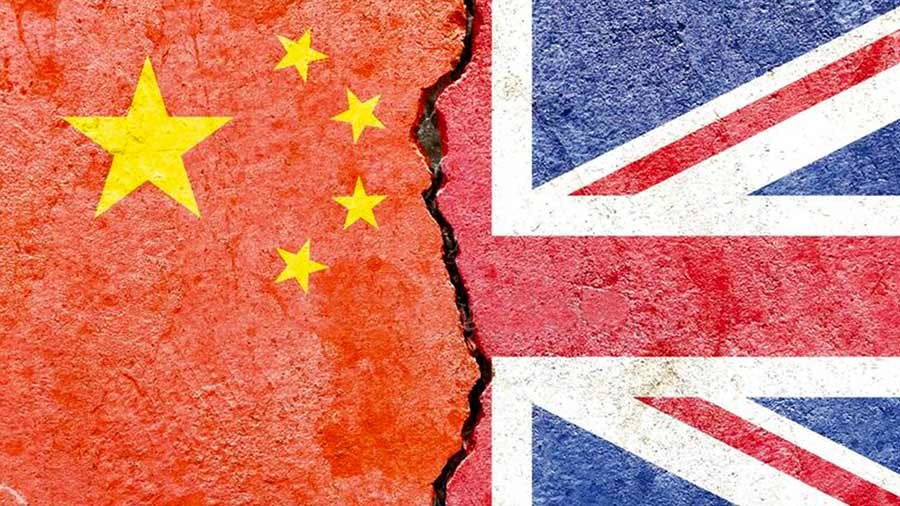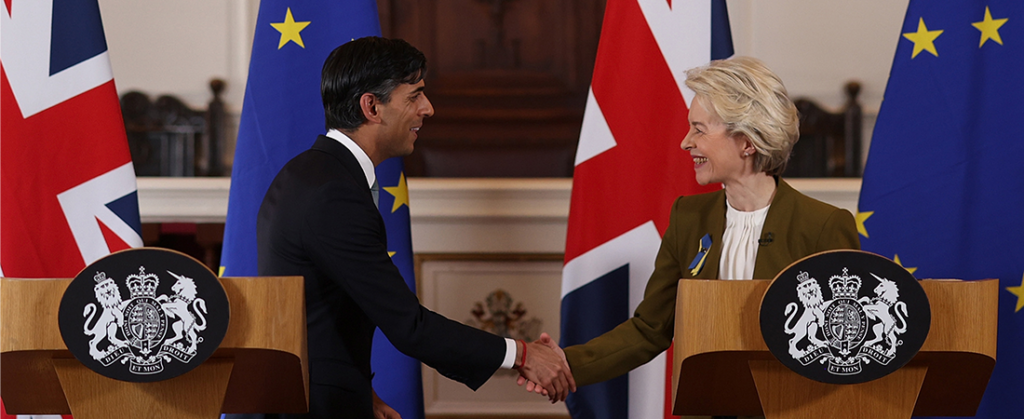“The Labour Party is like a stagecoach. If you rattle along at great speed everybody inside is too exhilarated or too seasick to cause any trouble. But if you stop, everybody gets out and argues about where to go next.”
Labour supporters love a Harold Wilson quote. The above feels like the most appropriate warning to Starmer of what may await in Government.
Current polls suggest that Starmer is also likely to have a shared experience with Wilson of minority Government. This as well as economic stagnation, questions around the future European relationship, and active trade unions.
Here, we break down three key groups Starmer will have to keep on the Labour Party stagecoach: the Parliamentary Party, the Liberal Democrats, and the Trade Unions. Respectively, we’ll do so via three policy areas where there is notable potential divergence: China relations, EU membership, and employment reform.
Labour PLP and China Relations
The Labour Parliamentary Party’s approach to China, just as seen in the Conservative Party, features figures who robustly condemn strengthening economic ties amid human rights concerns. This group includes former FCDO Shadow Frontbenchers Lisa Nandy and Stephen Kinnock. The two have been amongst the most vocal in their advocacy of a firm position on China, notably calling for sanctions on Chinese officials involved in the treatment of the nation’s Uyghurs.
Separate from this group, there exists a group of self-labelled “pragmatists”, who urge realism about the need to engage with China for reasons of economics, trade, supply chain, and geo-politics. Or, as current Shadow Foreign Secretary David Lammy recently suggested in a speech to Chatham House, “foreign policy must put pragmatism over ideology”.
It is not so easy to separate the two – and how Labour handles this divide on its own backbench will be critical not only to its foreign policy, but to trade, its commitment to decarbonise and its ambitions around technology.
Liberal Democrats and EU Membership
Current electoral arithmetic suggests that the Liberal Democrats and Labour will both have to consider what they would be willing to trade-off and prioritise in the event of a potential governing agreement.
The policy linchpin of the Liberal Democrats is its commitment to rejoin the European Union. Informed by the recent history of coalitions and the impact of student fees on voting intentions, it is similarly something Leader Ed Davey will be resistant to back down on.
Labour, on the other hand, has a more delicate position on the EU. Although the leadership has signalled closer alignment to the bloc in its “5 point plan to Make Brexit Work”, it has explicitly ruled out rejoining. Greater leeway has been afforded to the Party to strengthen its rhetoric on alignment as public feeling on Brexit has waned – whether this extends to full membership is at best, unlikely.
Trade Unions and Employment Reform
Labour’s relationship with the trade unions is critical to the Party’s success in office. As well as forming part of the ideological core of the Party, they also provide crucial funding.
Labour’s commitment to reforming employment policy is contained in the significant New Deal for Working People – drafted in collaboration with the unions. Delivery of this document within the first year of a Labour Government is an absolute priority for union leadership. However, a possible divergence in the content or delivery timeline remains a concern.
We can already see these tensions playing out in the recent Unite disaffiliation vote and its refusal to sign up to the National Policy Forum. It is a reminder that even if trade unions are affiliated to Labour, they are ultimately answerable to their membership.
Conclusion
It is imperative that Starmer keeps the Labour stagecoach moving and manages these different groups, partially in the event of a minority Government. As the Party plans to announce the conclusion of its National Policy Forum, and begins formally drafting a manifesto the question for all of us is: what will Labour prioritise and trade away to keep the stagecoach “rattling along”?





